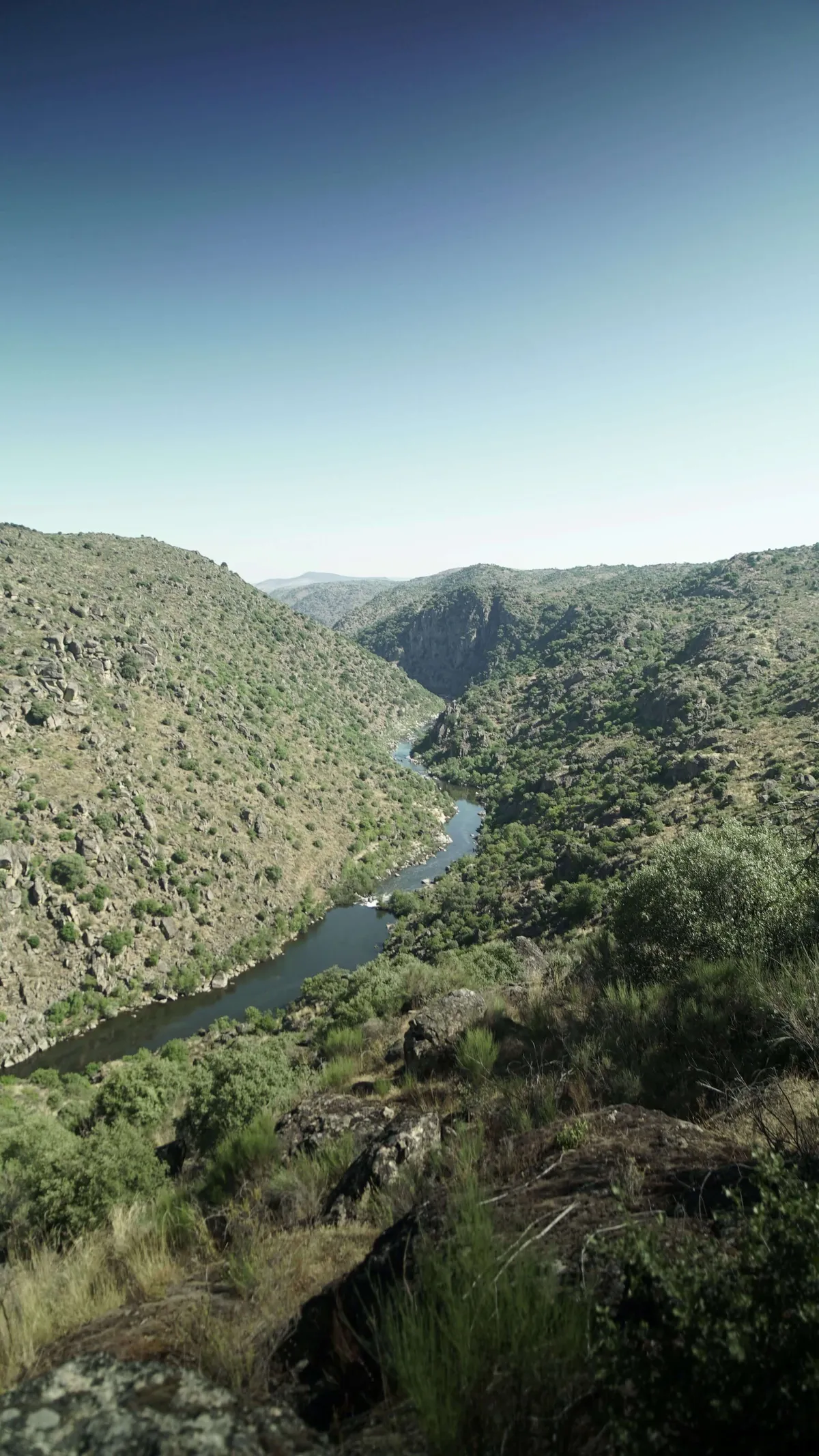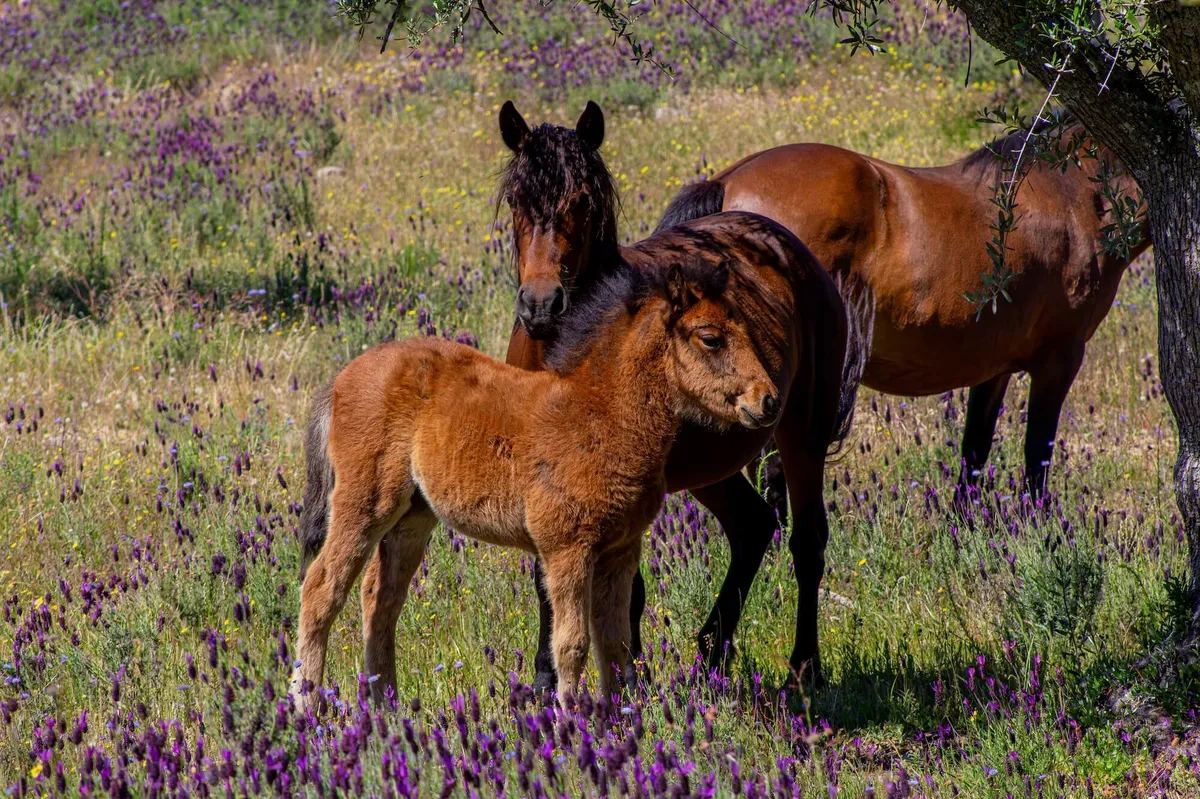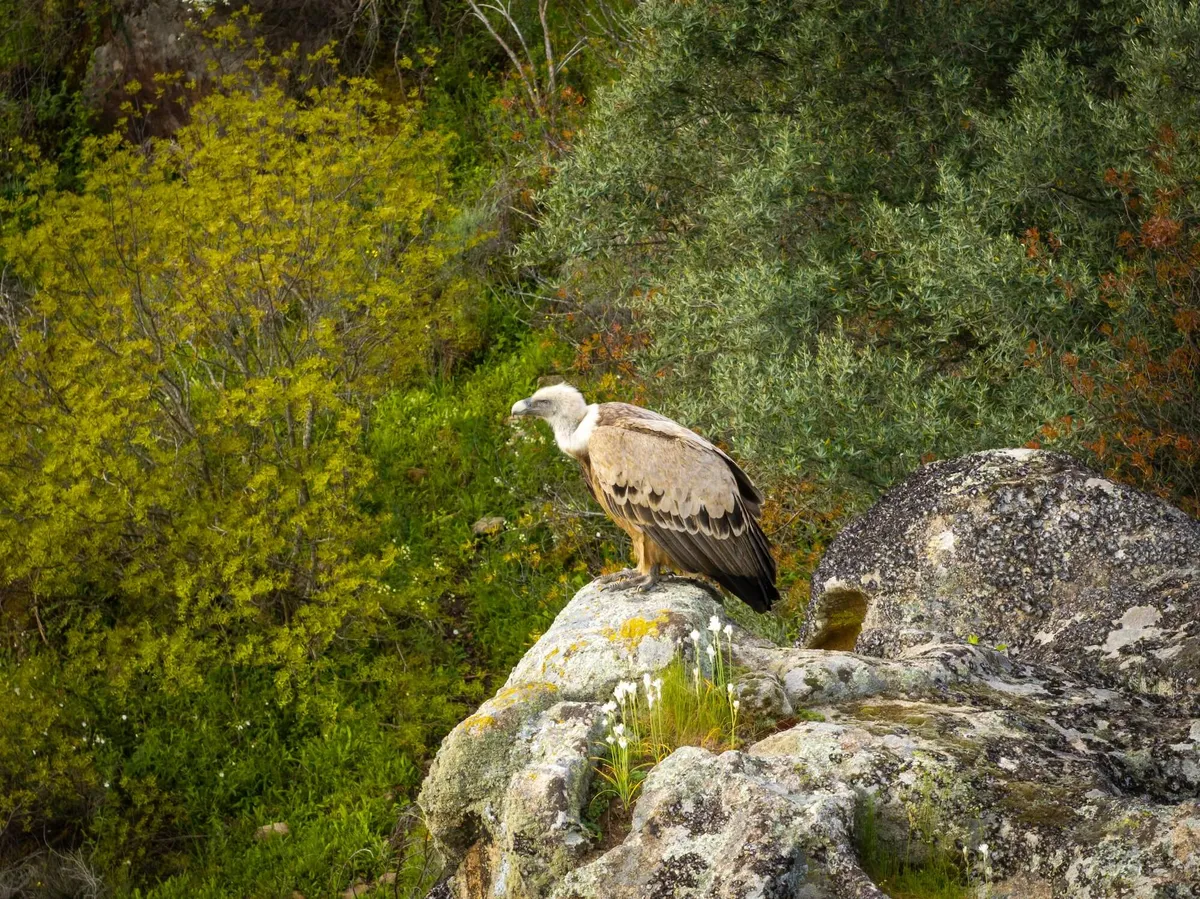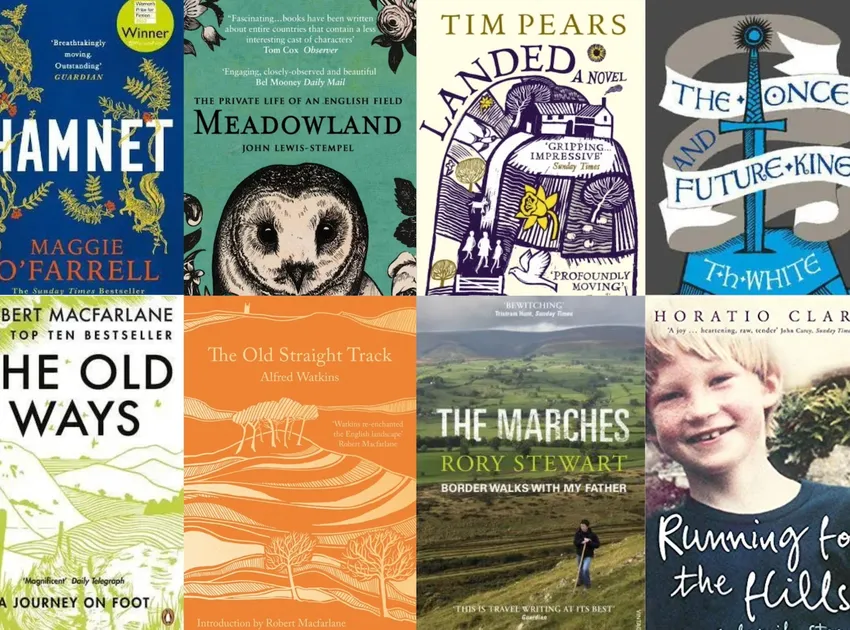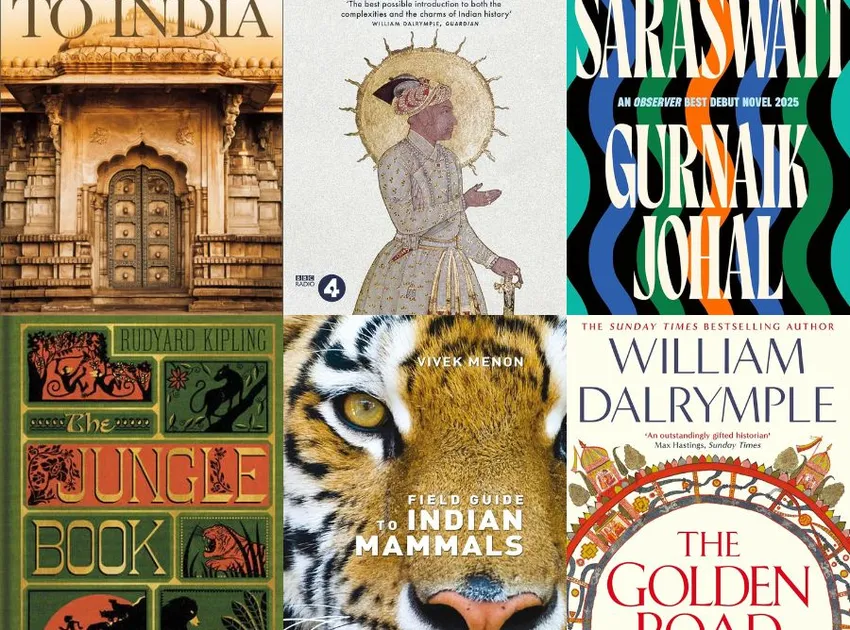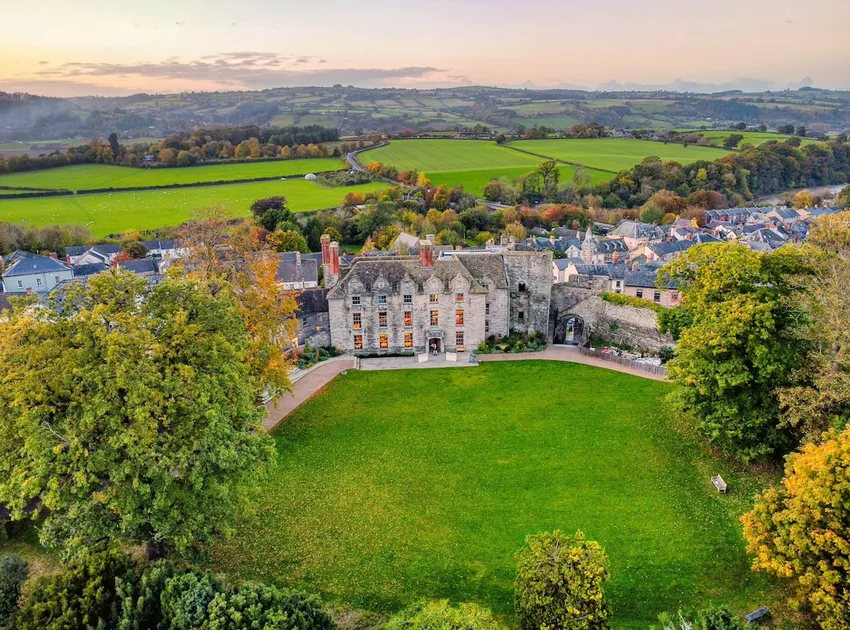25 Years of Faia Brava Nature Reserve
A pioneer in conservation and regeneration, the Faia Brava Reserve began 25 years ago as a small area of land in Portugal's Côa Valley. Now covering over a thousand hectares, the biodiverse area is home to many endangered and vulnerable species, including golden eagles and black storks. In the future, they hope to welcome the Iberian lynx and wolves. This year, as part of our 10 year celebrations, we are raising money for Faia Brava and nine other deserving charities.
Visiting Faia Brava is a highlight of any Slow Cyclist's journey through this wild and magical part of Portugal. This spring, a group of guests joined Faia Brava president Henk Smit for dinner where he told the story of Faia Brava over the past 25 years. Henk has kindly allowed us to share his wonderful speech below.
How it Began
After decades of working as a consultant, I never imagined I’d end up selling olive oil out of the boot of my car. But that’s exactly what I did. It was organic olive oil, harvested from groves inside a nature reserve in northern Portugal, and every bottle helped protect this precious landscape.
That olive oil turned out to be the beginning of something much bigger. It became my way in — to build support, raise awareness, and ultimately buy land for nature conservation in the Côa Valley.
I met Ana Berliner and António Monteiro some 20 years ago while on a Spanish course in the region. They invited me to visit their project, Riba Coa, and it was friendship at first sight. They were just launching Faia Brava — the first private nature reserve in Portugal — and I was immediately captivated by the richness of the landscape.
Coming from the Netherlands, I was stunned by the biodiversity still thriving here. There were songbirds in astonishing numbers as well as golden eagles, vultures, and other raptors, in a patchwork of ancient hedgerows, dry-stone walls, olive groves and vineyards, all shaped by low-impact farming.
The Challenge
So what was the problem? Abandonment and intensification: that’s the paradox facing landscapes like this.
As people move away from rural areas, land becomes abandoned. At the same time, the areas become threatened by industrial agriculture and forest fires due to unmanaged land. Portugal has no state funding for nature conservation, only for agriculture, so privately managed conservation has to find its own way.

What are we doing?
We began by creating a Faia Brava organic label, selling olive oil, almonds, wine, jam and honey in the Netherlands. Each product came with a promise: buy this bottle and we’ll protect 30 square metres of nature.
Slowly but steadily, we started buying land. From 100 hectares in 2005, Faia Brava has now grown to 1,000 hectares. Much of this is funded by private donors, many of modest means.
We’ve created a bottom-up conservation model, combining local and international support. Our ambition now is to grow to 2,000 hectares, protecting 15 kms of wild river, ideally owning both riverbanks. We also partner with other private landowners who manage their land for nature alongside us.
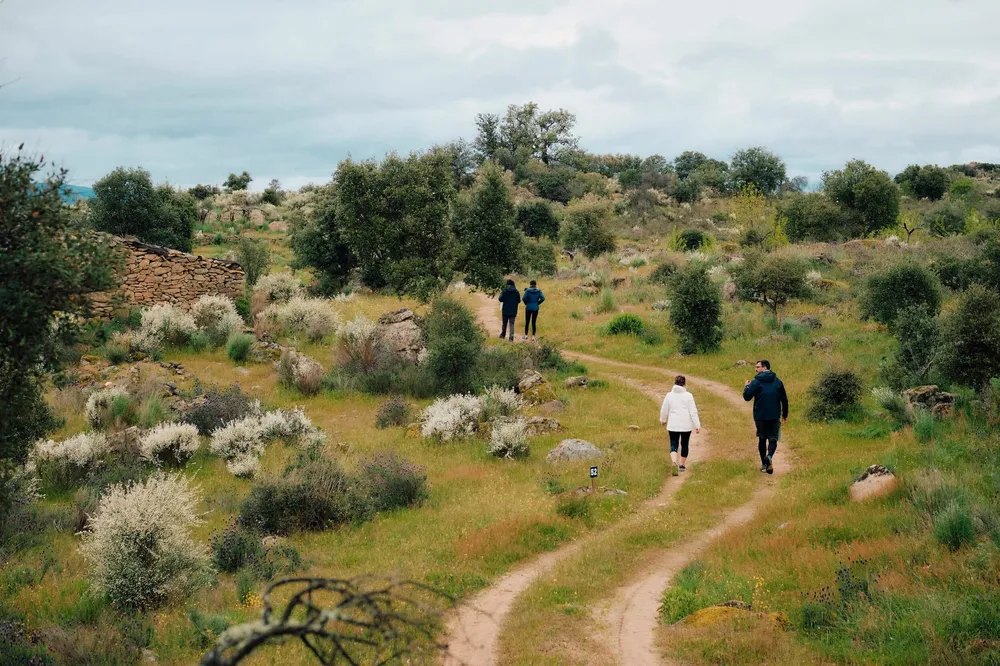
What’s the vision?
Our vision is a thriving mosaic of wild habitats, small-scale agriculture, and sustainable tourism. We are creating a rewilded corridor in the Côa Valley, where nature can regenerate, wildlife can return, and people can connect deeply with the land. We need to have a financially sustainable future, with enough funding (about €50,000 per year) to manage the reserve properly.
What is Faia Brava like?
It’s magic.
This is a place where Griffon vultures glide silently overhead and eagles soar over rocky ridges. You can hear the call of bee-eaters and see the flash of butterflies in olive groves buzzing with pollinators.
Faia Brava is one of the few places in Europe where you can still experience this scale of wildness, solitude, and subtle beauty.
A heartfelt thanks
This year, we are so happy to start welcoming the Slow Cyclist community into this landscape. You are true pioneers. We hope this will be the beginning of a lasting friendship, partnership and shared story.
How can you help?
Spread the word. We'd love for our visitors to tell people about this hidden gem and the work being done here. Let more people know about the important work we're doing.
You can also donate, as part of The Slow Cyclist's 10 year fundraiser which will help us to continue our regeneration work in the area.
And finally…
Those who visit Faia Brava and walk the trails, watch the birds and taste the olive oil are already helping to protect this place. Your presence supports a model of nature conservation that’s rooted in local knowledge, powered by friendship, and built to last. Together, we’re proving that small actions, multiplied, can make a big difference.
You can support Faia Brava's amazing work with a donation through our 10 year fundraising campaign.
And if you would like to visit Faia Brava and learn more about their ongoing conservation projects, take a look at our journeys through Portugal's Côa Valley.


